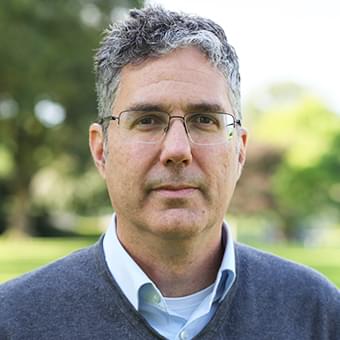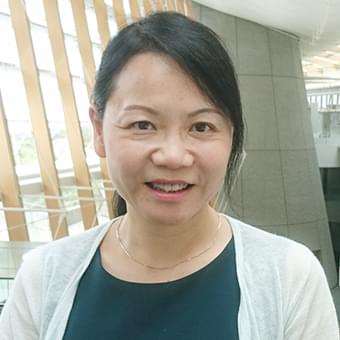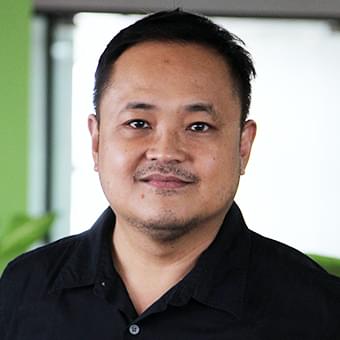Understanding the synergies and trade-offs between Sustainable Development Goals (SDGs) is important to ensure policy coherence across sectors and to balance the three dimensions of sustainable development. The COVID-19 pandemic and the evolving global crisis has affected the livelihoods and daily lives of billions of people around the world jeopardising decades of progress in many social and economic areas. There are now urgent calls for a transformative change for building a more sustainable, resilient and inclusive society. The SDGs remain more relevant than they were before COVID-19 in guiding the development towards long-term resilience and sustainability. It is even more important than ever to understand the synergies and trade-offs between SDGs to support the required transformative change. But how do synergies and trade-offs operate and impact on achieving SDGs in 2030? How can existing frameworks, models and tools for the analysis of synergies and trade-offs be improved by incorporating the knowledge from the COVID-19 crisis? How can we use the knowledge and analysis of synergies and trade-offs to support practical policymaking?
The proposed session will address these three questions. Experts from Europe and Asia will provide their knowledge and insights on these issues, and more importantly, they will provide solutions or make suggestions to utilise the knowledge of synergies and trade-offs between SDGs to support the desired transformative change towards the world we aspire to.
Trade-offs between SDG goals and targets at the sub-national scale create inequalities between segments of society when attempting to achieve the SDGs at the national level. In this research, we worked in China's Luanhe River Basin as a sub-national level case study to investigate how land use and land use change impact on flood risk and ecosystem services and disservices and more broadly on SDGs 6, 7, 11 and 13, with potential additional relevance to Goals 1, 2, 8 and 15. Land use and land use change is one of the anthropogenic drivers influencing…
SpeakersPresident, IGES

Moderator
Kazuhiko Takeuchi
President, IGES
Kazuhiko TAKEUCHI graduated from the Department of Geography, the University of Tokyo in 1974. He obtained M.Agr. and Ph.D. from the Graduate School of Agriculture, the University of Tokyo. He served as a Professor at the Asian Natural Environmental Science Center, and as Professor at the Graduate School of Agricultural and Life Science at the University of Tokyo from 1997 to 2012. He also served as a Vice-Rector and Senior Vice-Rector at the United Nations University from 2008 to 2016.
From 2016, he has served as a Senior Visiting Professor at United Nations University Institute for the Advanced Study of Sustainability (UNU-IAS). He was Director and Professor/Project Professor of IR3S at the University of Tokyo from 2017 to 2019. He has served as President, Institute for Global Environmental Strategies (IGES) since July 2017. He took up the position as Project Professor of the Institute for Future Initiatives (IFI) at the University of Tokyo in April 2019. He has served, inter alia, as Chair of the Central Environmental Council, Government of Japan, Editor-in-Chief of the journal Sustainability Science (Springer Nature) and Distinguished Chair, Wangari Maathai Institute for Peace and Environmental Studies, University of Nairobi.
He specialises in landscape ecology, landscape planning, and sustainability science.
Professor of Environmental Risk, Community Resilience, University of Glasgow, School of Interdisciplinary Studies

Fabrice Renaud
Professor of Environmental Risk, Community Resilience, University of Glasgow, School of Interdisciplinary Studies
Dr. Fabrice Renaud is Professor of Environmental Risk and Community Resilience at the University of Glasgow's School of Interdisciplinary Studies in Dumfries, and Research Director for the National Centre for Resilience, an organisation which aims to build Scotland's resilience to natural hazards. His research interests include the assessment of vulnerability and risk of social-ecological systems exposed to natural hazards with a specific focus on hydro-meteorological hazards and coastal and deltaic systems. His research also aims to understand the multiple roles ecosystems play in terms of disaster risk reduction and climate change adaptation, particularly from the perspectives of local communities. He co-leads IUCN-CEM’s Thematic Group on ecosystem-based disaster risk reduction.
Research Leader, Strategic and Quantitative Analysis Centre, IGES

Xin Zhou
Research Leader, Strategic and Quantitative Analysis Centre, IGES
Dr. Xin Zhou is a Research Leader at the Strategic and Quantitative Analysis Centre (QAC) at the Institute for Global Environmental Strategies. Currently, she is leading quantitative policy research in the areas of SDG interlinkages analysis and visualisation, green investment and green jobs assessments, and the water-energy nexus. In recent years, she led a wide array of policy assessment projects, including, but not limited to: the implications of nationally determined contributions (NDC) on the labour market in Indonesia, an assessment of carbon pricing and border carbon adjustment on industrial competitiveness and carbon leakage in Japan, an assessment of embodied emissions and international trade for Asian countries, an assessment of environmental goods and services sectors and their effects on employment in north-eastern Asian countries, as well as the development of the Japan 2050 Low Carbon Navigator.
She received a Ph.D. in Environmental Studies from Nagoya University, Japan, in 2007. Before that, she had been working with the Policy Research Center for Environment and Economy (PRCEE), the Ministry of Environmental Protection, China, since 1994. As Director of the Policy Research Division, she led many policy research supporting national policy-making on the environment. She has received several national scientific achievement prizes for her academic and social contributions to the Chinese government.
Senior Research Fellow, Stockholm Environment Institute, Asia Center

Albert Mutia Salamanca
Senior Research Fellow, Stockholm Environment Institute, Asia Center
Albert is a Senior Research Fellow at the Stockholm Environment Institute’s Asia Centre where he leads its Climate Change, Disasters and Development cluster. Albert has over 15 years of experience working on climate change adaptation, natural resources management, conservation, development and sustainable livelihoods issues in several countries in Southeast Asia. His current research interests are on the themes of resilience, risk and vulnerabilities, traditional ecological knowledge, mobility and spatial linkages, disaster displacement, and sustainable livelihoods. He is a member of the UK GCRF Living Deltas Hub. His recently co-edited volume entitled "Climate Change, Disasters, and Internal Displacement in Asia and the Pacific" was published by Routledge.
He previously led SEI’s global initiative on Transforming Development and Disaster Risk and contributed to the Climate Services Initiative through the School of Climate and Living Traditions. Other projects he managed include the Regional Climate Change Adaptation Knowledge Platform (AKP) and the Partnership in Governance Transition: the Bali Cultural Landscape. Albert also contributes to weADAPT, an adaptation portal hosted by SEI. He has a PhD in Geography from Durham University (UK).
Senior Scientist, United Nations University Institute for Environment and Human Security (UNU-EHS) Environmental Vulnerability & Ecosystem Services (EVES)

Jack O’Connor
Senior Scientist, United Nations University Institute for Environment and Human Security (UNU-EHS) Environmental Vulnerability & Ecosystem Services (EVES)
Dr. Jack O’Connor is a senior scientist in the Environmental Vulnerability and Ecosystem Services (EVES) section of UNU-EHS. He is an ecologist and environmental scientist with a focus on ecosystem-based adaptation and sustainable development, with particular expertise in managing and mitigating anthropogenic impacts in coastal socio-ecological systems (SESs). Dr. O’Connor is involved in the GCRF Living Deltas Hub, an international consortium of transdisciplinary researchers developing new socio-ecological frameworks for sustainable development in major river deltas. His research role in the Hub is to improve delta-level monitoring of the UN’s sustainable development goals (SDGs) and derive with stakeholders a new indicator-based assessment framework focusing on delta-specific SDGs.
Research Leader, Sustainability Governance Centre, IGES

Eric Zusman
Research Leader, Sustainability Governance Centre, IGES
Eric Zusman is a Senior Policy Researcher and Area Leader at the Institute for Global Environmental Studies in Hayama, Japan. He holds a Bachelor’s degree in Mandarin Chinese from Rutgers University, a dual Master’s Degree in Public Policy and Asian Studies from the University of Texas at Austin and a Ph.D. in Political Science from the University of California, Los Angeles. For much of the past two decades, he has worked on environmental issues in Asia. This has included publishing articles and book chapters on water scarcity, air pollution regulation, environmental law, and state capacity in Greater China. He has also worked with China’s Yellow River Conservancy Commission and the Chinese Research Academy on Environmental Science. In addition, he has also held research assistantships with the Woodrow Wilson Center’s China Environment Forum in Washington D.C., as well as Taiwan’s Academia Sinica. He is currently serving as a lead author for the sixth assessment report of the Intergovernmental Panel on Climate Change (Chapter 17).